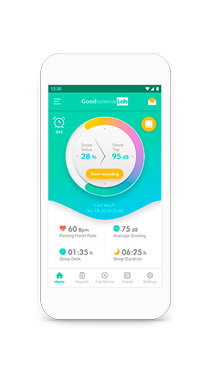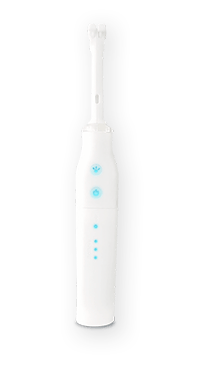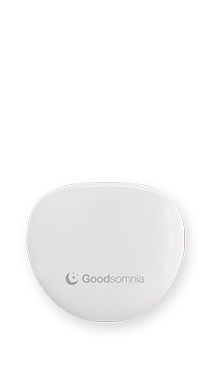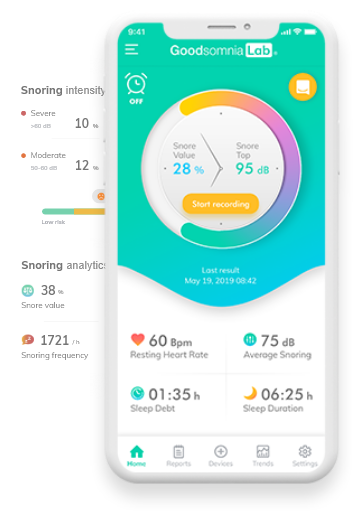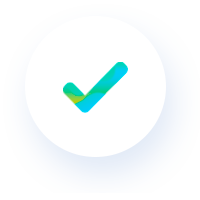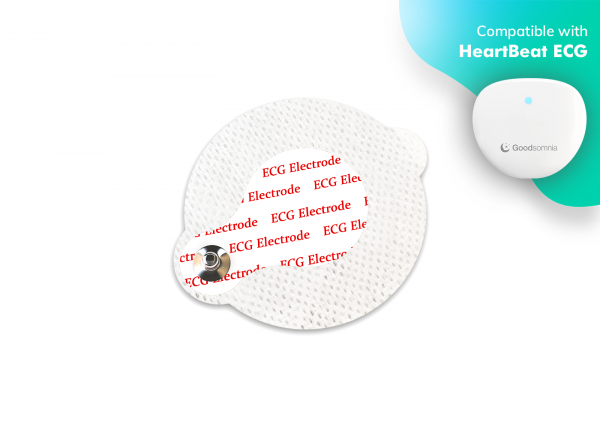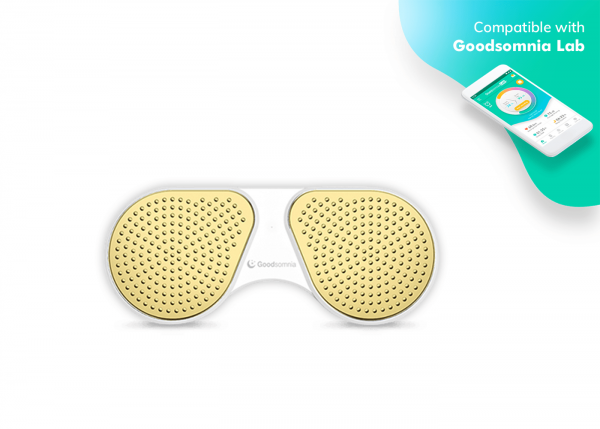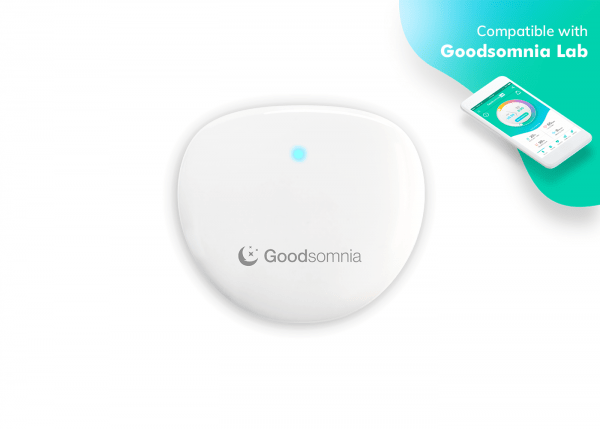Sweaty palms, increased heart rate, anxiety, stress. You may think that these are typical sleep apnea symptoms and you’re right. But these are also the feelings we have before the consultation with a doctor. Because of the overloaded schedule, a person may wait for the appointment for weeks or even months. So, you have to be very well-prepared not to waste time and take as much use as possible. To help you feel more confident before the consultation we have made the “Appointment day” guide and gathered the most typical questions you should get ready for.
What are the causes of snoring and OSA?
Frequent, prolonged breath cessations that may last 10 seconds and can be repeated from 30 to 100 times per night is the vivid alarm of sleep apnea. Snoring is one of the symptoms of sleep apnea and it can’t be ignored. The pauses in breathing result in low blood oxygen level. Basically, during snoring and sleep apnea your heart must work twice harder to deliver enough oxygen to the cells. People with sleep apnea have interrupted sleep cycle, as a result, they feel tired in the morning, suffer from anxiety and are at higher risk for heart attack and health troubles.
There are different reasons “why” starting form age, sex to sleep position and genetics. It’s proved that men are at a higher risk zone to have sleep apnea than women. In children, the most common cause of obstruction is enlarged tonsils and adenoids. Snoring and weigh are highly linked because people with extra weight usually have increased neck size that makes it difficult to breathe. Among causes may be a genetic predisposition and birth defects, like Down syndrome or Pierre-Robin syndrome.
Which doctor you need and how to prepare for the appointment
If you suspect to have sleep apnea, consulting with a doctor must be the number one point in your to-do list.
-
Which specialist to choose
The first problem we face up with is “What is a snoring doctor called?” or “Do I need a sleep apnea doctor?”. Let’s make it simple. As snoring and sleep apnea connected with three parts of our body: ear, nose, and throat. Mostly with the last two, if to put them together, we’ll get an ENT doctor. Otolaryngology and snoring are integral and the ENT may determine that causes of your obstruction and help you to make an action plan of treatment on the first stages of the disease.
-
How to prepare for the appointment
The output of the ENT appointment day depends a lot on how you prepare to it. Here is the list of things you have to do in advance:
- Bring your personal health record;
- Write down all the symptoms and possible causes for snoring. Feel free to mention all the details because sometimes even having a snoring partner can be a reason for the disease;
- Ask your bed partner to describe what he or she noticed during your sleep. You can also ask to accompany you for the consultation.
- It’ll be super cool if you track your sleeping activity before the appointment. It’s not that difficult, especially now at the age of technology. If you sleep alone or your bed partner is out for the count, a snore tracking app is just perfect to you. For example, Goodsomnia Lab will do everything instead of you. After downloading it, you simply need to activate a sleep recorder before going to bed and in the morning you’ll get full analytics of your sleep. It includes the intensity of snoring, periods and volume, also you’ll get to know snore value and snoring Index. It’s a pre-diagnosis app that will help both you and the doctor.
- Make the list of all the medications, vitamins and supplements you’re taking;
- The last one – prepare the question to ask.
-
What happens at an ENT appointment
Now you’re well-prepared and let’s imagine that ENT appointment – today. What to expect? Most ENTs start with the examination, in other words, ENT test. ENT test means that the doctor will take a look at your tonsils, adenoids, and airways. If any of these structures are the reason for obstruction, the ENT will remove it. In case, when the source of breathing stops isn’t clear, the ENT may propose you to take the snore test or sleep apnea test, like Polysomnography. It’s one of the most popular method of diagnosis.
8 questions you should get ready for
Consultation with a sleep specialist is huge and you need to be well-prepared. Here is the list of questions your doctor may ask. Getting ready for some of them can help your ENT for snoring treatment:
- What was the time when you first snore?
- How often do you snore? Every night or once in a while?
- Do you wake up during the night? If yes, how many times?
- Have you done something to improve your snoring? If yes, what exactly and did it help?
- Have you ever take a snoring diagnostic test?
- Did you notice something that appears to worsen your snoring?
- How loud is your snoring? Does your bed partner complain of it?
- What daytime symptoms are you experiencing, such as fatigue, sleepiness?
Be sure to tell the physician everything you find important and even more. Because the result is not only about can ENT fix snoring or can’t, it also depends on how sincere and prepared you are.

